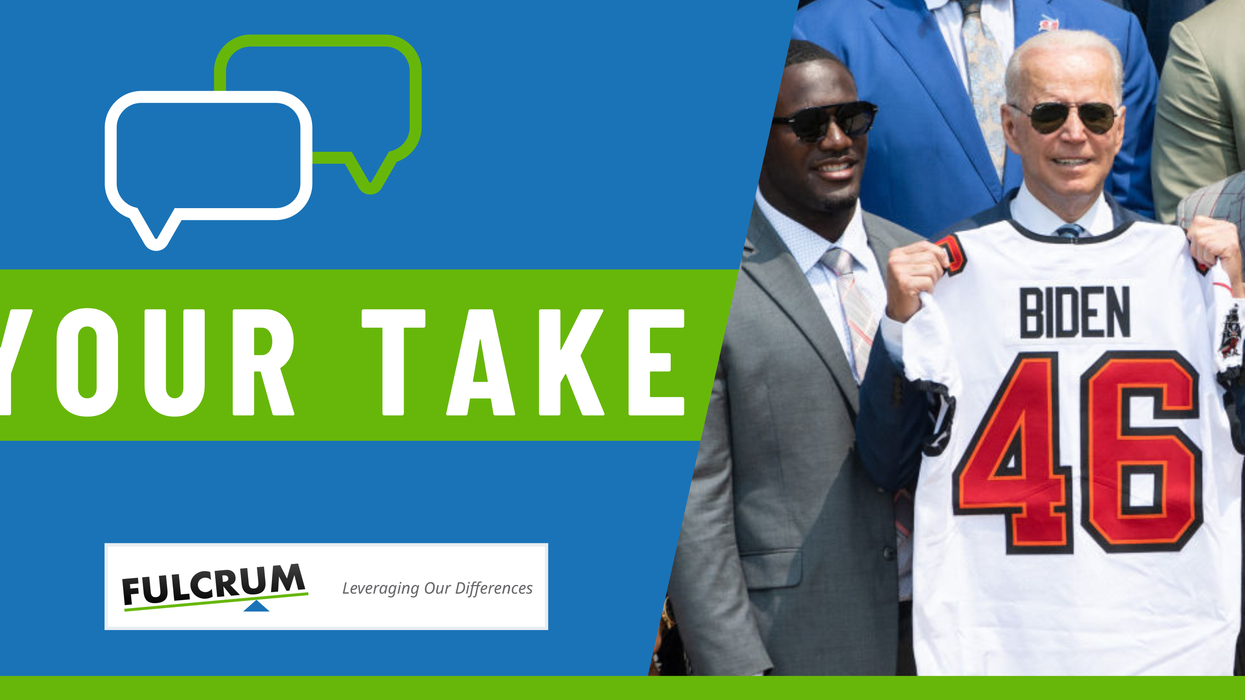Earlier this week we asked the following questions of our Bridge Alliance, Coffee Party and Fulcrum communities regarding the potential political complexities that may come into play as championship sports teams visit the White House, especially in our country’s current politically charged climate. We asked:
- Are visits to the White House inherently political statements? What is the cause of this political charge?
- How would you recommend extending or accepting a championship congratulatory visit if there are political differences?
While sports is idealized to be the last apolitical frontier that we have as a culture, political inertia has become a reality in recent years especially. Good or bad, in previous decades of political tension, minimal thought was given to how the political sphere can infect the non-political. Now, many of our political alliances have become almost a part of our innate identity, necessitating new considerations on how to keep division at bay.
Even in consideration of this year’s March Madness women’s basketball championship, which was in fact the all-time highest viewed championship of its kind, conversations on racism and sexism detracted from the historical notability of the moment. First Lady Jill Biden’s comments were widely considered as stepping in the proverbial mess, illuminating the need for important cultural dialogue. Whether a team decides to visit the White House or not, our ability to engage in said dialogue remains valuable.
Your responses suggest that the political and apolitical are not always fitting as a strong binary; there is a lot of nuance. The real issue becomes the level of our ability to engage responsibly.
Here is a sample of your thoughts. Responses have been edited for length and clarity.
Every administration is reflective of political leanings - Democrat, Republican, (or perhaps something else in the future) - Paul Dupuis
Just like deciding not to go to the White House, deciding to go is a political statement. It may be a weaker statement, but it's tacit approval of the administration. A clear statement on the differences as part of the acceptance would help. I'm not looking for purity, but rather clarity. - Erica Schmitt
I would recommend the White House to stop inviting sports teams, movie stars, and other non-political entities. Accepting or rejecting a White House invitation has become political statement, due to the way the political parties behave. Accept the reality and move on. If, at any point, political parties are back to actually providing governance for the country, rather than looking to score points for their supporters, they can consider going back to non-political events.- Eric
Sadly, I think nearly all celebratory invitations to the White House have become political statements. This seems to stem from the abundance of instant information that contributes to polarized perspectives. I would hope that the invitation is extended and accepted with grace and good will and, if necessary, a reminder that it is not viewed as a political statement. - Barbara Weber
Visits should not be political statements. I do not believe they ever were. But, in today's climate they have become so. For these visits to not be political requires a president who understands the presidency is there to serve all citizens, especially on these very universal events such as congratulating athletes for a job well done. But, from any normal observation, the pre-Trump presidencies performed these traditional roles very well. The events were always as "neutral" as the annual pardoning of the Thanksgiving turkey. We have disagreements on the best approaches to issues. Reagan and Tip O'Neill were buddies, for example. Certainly, they could attend the same events despite their differences. It all is a question of character and civility. - Charles Gage
I think that making the accomplishment political would diminish the purpose of the invitation and might make some recipients decline the invitation. - Ron Tobias
The White House should extend an invitation to major sports champions and be gracious hosts. That is all. - Adam Delouche
I think that this country focuses too much on sports. Sports are entertainment and not essential to the functioning of our society [which helps to lend these visits to politicization]. I would rather visits be from championship robotics teams or scientific teams that have made new discoveries. Groups or individuals that volunteer to clean up after a hurricane or flood or tornado or other natural disasters should also be invited. - Harold Faulkner, III
Our toxic political environment where political position is equal to moral character has added angst to what was before something teams just didn't turn down. Today, who you are seen with is judged by many as your statement of who you support or tolerate (e.g. Ellen DeGeneres being seen hanging out with GW Bush at a football game). This creates angst for participants who have a disdain for the President or who (often rightly) fear backlash for having participated in the ceremonies from those who disdain him. - Bruce Bond
Those visits did not used to have a political component, but they have developed. Sports champions reflect the best of American values. Those values include sacrifice, fair play, inclusion and overcoming adversity. The conflict comes because/when the occupant of the White House does not represent those values. - Larry R. Bradley




















Trump & Hegseth gave Mark Kelly a huge 2028 gift